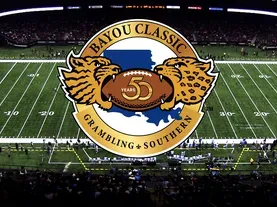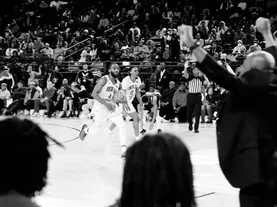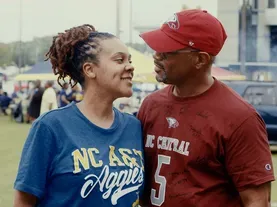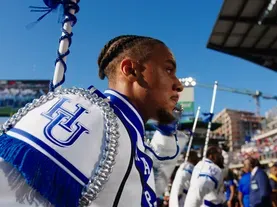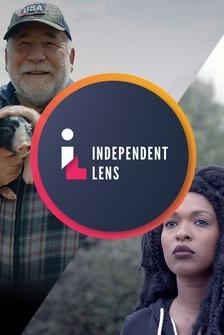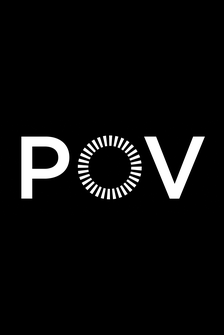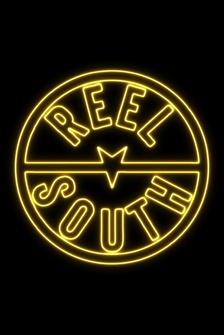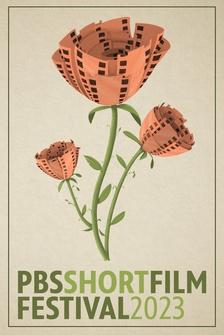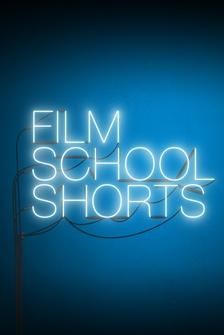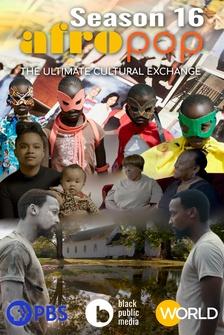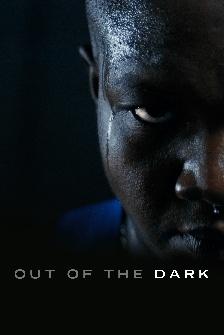VANN: It's not often that you can say that you have a rival that now numbers at over 101 years.
TINA MCDUFFIE: Every year, historically Black colleges TINA MCDUFFIE: Every year, historically Black colleges and universities showcase premier football matchups.
HILL: Some of the greatest players that you now see in football, in the Hall of Fame played in HBCUs.
MCDUFFIE: The spirit of these classic HBCU rivalries.
From Maryland Public Television, HBCU Week, Tradition and Competition on Local, USA.
♪ ♪ Every year, since 1908, the two HUs, Hampton University and Howard University face off in a highly anticipated football game.
This historic rivalry includes shared festivities and serious competition.
So in Black college culture, the debate over who's the real HU, Hampton or Howard is debated in barbershops and hair salons across the country.
Whether you went to Hampton or Howard or not, whether you went to an HBCU or not, if you're a member of the Black community and maybe you're not, you have heard of the debate between who's the real HU.
(upbeat music) Best.
MCGHEE: Played at Howard 2011 through 2015 and now I am currently the quarterback coach here.
My name is Brittiany Cierra and I am a HU enthusiast.
I went to Hampton University.
My name is Zachary Pegues, I attended Hampton University and I graduated in 2016.
Larry Scott, I'm the head football coach here at Howard University.
♪ ♪ (marker writing) HILL: So we have to do the genesis, right?
So prior to sports becoming entertainment, becoming marketable on ESPN, before ESPN, oftentimes, African Americans weren't allowed to go to Nebraska, Michigan, Georgia, LSU, South Carolina, they just weren't.
So out of that became the HBCU conferences with the SWAC, Grambling, Southern, and then up this way it was A&T, Howard, Delaware State, all those HBCUs.
And during that time, people don't know it if you're not familiar with the history, some of the greatest players that you now see in football in the Hall of Fame, played during those periods in HBCUs.
So they began to recruit after integration/desegregation.
And so slowly, but surely, they begin to build that brand.
(bright music) - Man, I think you can go in probably any building from here to all the way down to Virginia, and there's probably not two people that work in there, that, one represents Howard and one represents Hampton.
(bright music) HILL: Prior to Division 1, both institutions were a member of the CIAA, which was Division 2 small college.
So in 1971, Howard decided to move up in NCAA division, more money, more exposure, et cetera, et cetera.
Hampton Institute decided to stay at the Division 2 level CIAA.
So because of the lure and attraction of the money, exposure in 1995, '96, Hampton applied for admission to the MEAC, which Howard was a member.
MCGHEE: You gotta go back, man.
And it's like, obviously Howard is Howard as far as the reputation, there's a lot of pride involved in both schools, right?
And it's just like, who's the real HU in a sense?
But it goes so far back.
I go, I know as far back as my coaches and Ted White and Gary Harrell, Flea, all those guys, they kind of talked about the rivalry, and the sense of urgency, and the buildup to this game every year.
PEGUES: I'd say for all of the games in which I do, you know, attend, whether I be alumni, or when I was actually at the school, I always made sure I attended the Howard games.
So whether it be them coming to our school or you know, me traveling to DC, it was definitely something that was always marked on the calendars just because of the camaraderie around it.
And again, I think at the end of the day, like, Hampton and Howard do see each other as, like, this unique family.
CIERRA: So when you go to a HU-HU game, one thing I can say, both schools, everybody's fly, everybody looks good, everybody smells good, it's a good time, it's like a family reunion.
They like your cousins on your daddy's side, like, you love 'em, but like, hey, girl, and I'm gonna go hang out with my real friends.
SCOTT: In the end it's gonna be that, you know, that conversation that chatter back and forth about, you know, who's the best in anything, whether that's in law, or whether it's in medicine, whether it's on the football field, or like you said, the bands, or whether it's in cheer, whatever it is, there's gonna be that kind of sibling rivalry between each other that banter that goes back and forth.
And it's fun because it represents so much more than just whatever that is, right?
I think it's healthy.
But it's also a driving force between two really good institutions, only one institution, and the other one is a university.
HILL: I always tell this story, it all started with a football game between Howard and Hampton over at RFK Stadium, Hampton's, first year in the conference, the Middle East Athletic Conference.
So there was an event called the Greater Washington Urban League Classic.
So in this particular game, Howard had a good team.
They pounded Hampton.
So after the game, they had officials, the president, athletic directors, come down to the field and accept the runner up, and the champion, the winner trophy.
It's purported, reported that when Howard and Hampton were on the field, the then president, Dr. Harvey, accepted the runner up trophy.
And he looked at the ministry and said, this will never happen again.
And you know what, 15 straight years, Howard never beat them.
I remember my freshman year, as an 18-year-old freshman going down to Hampton and breaking that 15-year streak.
Yeah man, that's big, it's bigger than, you know, most rivalries in HBCU.
CIERRA: Who's the real HU?
My answer is always Hampton's the better HU.
PEGUES: You know, choosing Hampton was my first real look at this whole HU versus HU thing.
Go Hampton!
SCOTT: I tell you what, it's, you know, all of it is fun, sometimes good, healthy fun.
Obviously, we support all HBCUs, but at the end of the day you have Hampton, they wanna be referred to as the university, I get it, I understand.
Like, historically, we started off as Hampton Institute, I will be the first one to tell you that, but right now we're a university.
SCOTT: And we are Howard University by name, by trade.
Our brand is what it is.
And I think it speaks volumes to, you know, the excellence that comes with being a part of, being a student or being an alum, or being any part of Howard.
PEGUES: I always felt that Hampton was better from an academic and sports perspective even though both are good schools.
HILL: I think I'm long past since comparing one institute, I think that all of us, whether it be Grambling, whether it be North Carolina A&T, whether it be Hampton, whether it be, Howard, we have a mission and that mission may fit and suit the personality of a certain population while the other one does not.
MCGHEE: You know, I always felt like there was a light on HBCUs, but it just depends on, you know, the face of it, in a sense, right?
We all talk about Deion Sanders now, you know, bringing light back into HBCU athletics, not even just football, but athletics.
But after that you had a group of, you know, big time NFL Hall of Famers who end up coming back to be head coaches at the HBCU level, you know, and I just feel like that speaks volumes and brings more light to this level of football, or school or whatever it may be.
And just show the importance of how important it is for people like us to continue to, you know, invest into these HBCUs.
♪ ♪ MCDUFFIE: The century old rivarly between the North Carolina A&T Aggies and the North Carolina Central Eagles is fueled by their close location to one another.
(whistle blows) Their annual football game has been one of the biggest events in the state for African Americans.
The Aggie-Eagle Classic in North Carolina, again, on Tobacco Road features a matchup between North Carolina A&T State University and North Carolina Central University.
And anybody who grew up in North Carolina, as I did, understands that this is, in North Carolina, one of the biggest matchups of the year.
It's more than a game.
It is multi-generational families who are interconnected with one another, who either went to Central or A&T or both.
And it is part of the pride of being a North Carolinian, is to attend the Aggie Eagle Classic and get your HBCU groove on.
Henry came in 1949, I came in 1950.
African Americans couldn't go to to hotels and that thing, so Beta Kappa Chi had a party at the Magnolia.
I was here in Greensboro, and I looked over at the table, and there was Henry playing cards with someone, having a great time, drinking a Coke.
And I said, wouldn't it be nice to have come with somebody like that?
♪ Feels like coming home ♪ HENRY: How's that?
Well, A&T and North Carolina Central were and still are, what would you call it?
- Competitors.
We are competitors.
♪ ♪ JOHNSON: Until our research, we thought that the game, the first game played was in 1924, but it turns out the first game was played in 1922.
BOYCE: So the Aggie-Eagle Classic has only been canceled or unscheduled four times in its history, in 1929, 1943 and 1944, due to World War II, and in the pandemic in 2020.
VANN: It's not often that you can say that you have a rival that now numbers at over 101 years and going strong.
You typically had small crowds coming out to the game, by small, maybe 1500, 2000 people.
And then it has evolved over the years, especially after integration where it went through a period where it was the largest single-day event for African Americans in the state of North Carolina.
There were spaces for African Americans in the HBCU, along with the Black church, was one of those spaces.
Actually, I was a high school student in the late sixties when I went to my very first Aggie-Eagle Classic.
I have been going to the games since the 1970s.
We've been to all of them, I mean, at least for 70 years, As you, no, it's not just about the classic, there is culture, there is step shows, there is so many other things that our institution can showcase.
Tailgates are really big.
- Traditions, histories.
Relationships, - Generate revenue.
- Oral, and written, and lived experiences.
- Fans, excitement.
OLIVER: It was a great feeling for you to be able to come out of the tunnel in front of 40 and 50,000 people as a player.
And a lot of times on this level, you know, a lot of student athletes don't have an opportunity to experience that.
(crowd cheers) You know, it also goes back to the battle of the bands.
(trumpets blaring) Just seeing the crowd response and seeing the response of the students when we come off of the field is priceless.
- We just go out there and enjoy the game, enjoy the performance, enjoy the entire day, and just make it so everybody else can do the same.
This is another football game, but it has significant value for our fan base and our football alums.
- The game used to be called the Turkey Classic and it used to be played on Thanksgiving Day.
So you have people coming together for Thanksgiving dinner who are affiliated with one school or the other, but they're family.
- There are many more people coming than came before because I think there are more of us appreciating higher education than when we came.
(bright music) (crowd chants) have Aggies that work here and Eagles that work over there.
I was getting from people in Greensboro, what are you wearing, what are you wearing?
You are an Aggie.
I was getting from people here at NCCU, what are you wearing, what are you wearing?
You better not have on blue and gold.
You will see at least six blocks behind, neighbors with their tables out selling water, selling Kool-Aid, selling snacks.
Wherever there was a historically Black college built, they created economic opportunities for those people who lived in that city and in that community.
- It's something about just having something in common with somebody else that just brings everybody together.
We can compete and still love one another.
- North Carolina.
- I love to say to the people at North Carolina Central, that everybody makes one mistake.
- We love you, but today, I don't have any friends.
- Every year, each institution wants to be tops.
(whistle blows) (crowd cheers) It doesn't matter what sport it's in, you could lose to anybody but not A&T.
(crowd cheers) HAYES: And past records didn't mean a thing.
You know, sometimes you were having a bad year and, but if you could just win the Aggie-Eagle Classic, then you'd be forgiven for anything.
(crowd cheers) (whistle blows) At the end of the day, it's two HBCUs, two great programs, two great institutions that are battling on the football field.
MARTIN: It's the passion we have for each other and support we have for each of our institutions that matters.
I enjoy a good game.
Whatever happens on that field, once it ends, we go back to being family.
- But it's all done with love and respect.
- I'm just pleased to know that the tradition with the Aggie-Eagle Classic is continuing, and I hope it continues forever.
Whoa.
(lips smack) How's that?
That one for the ages.
(Henry laughs) ♪ ♪ ♪ ♪ ♪ ♪

